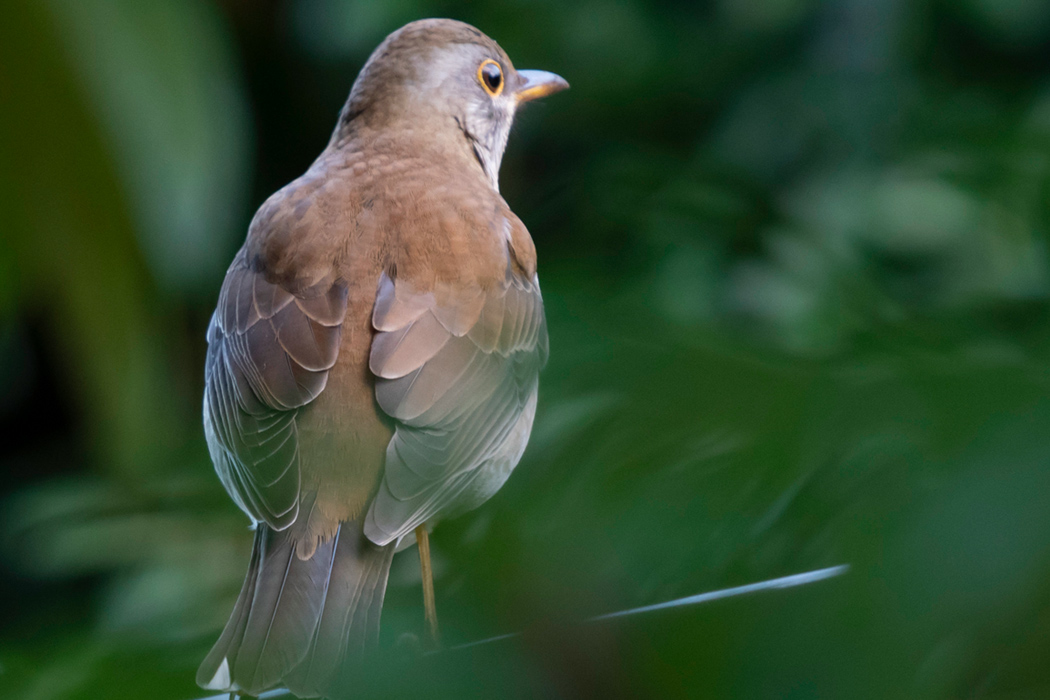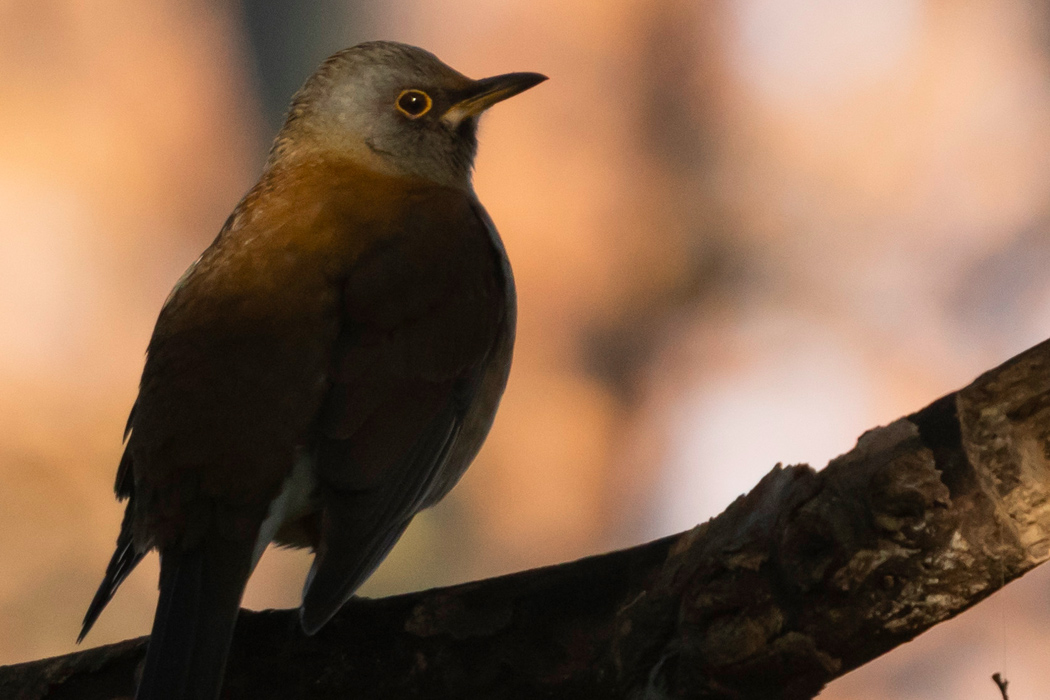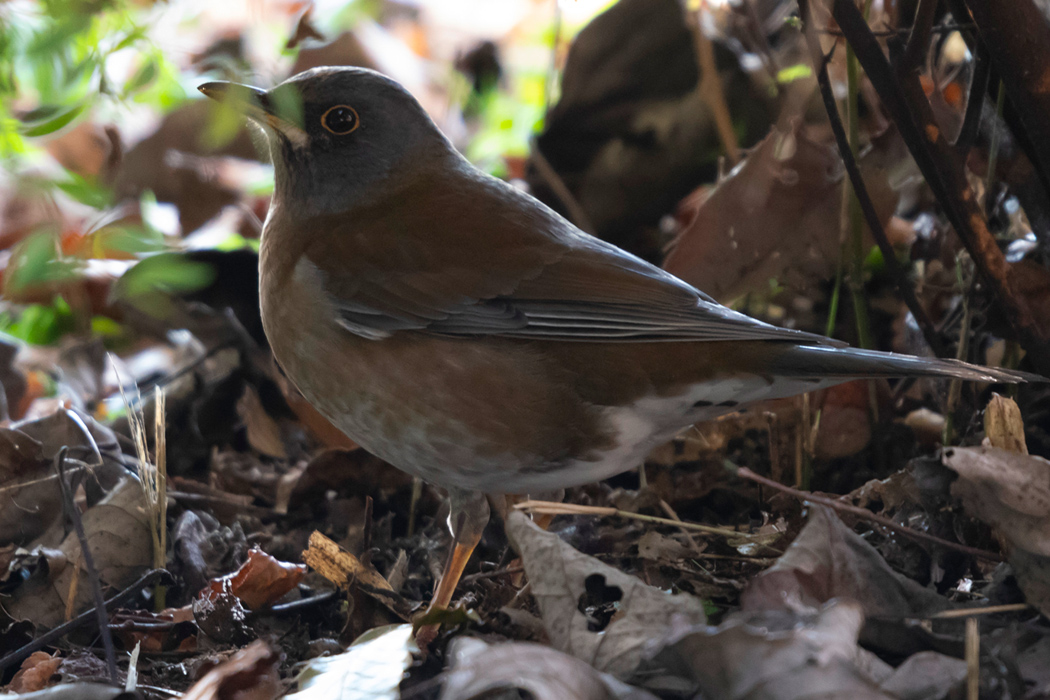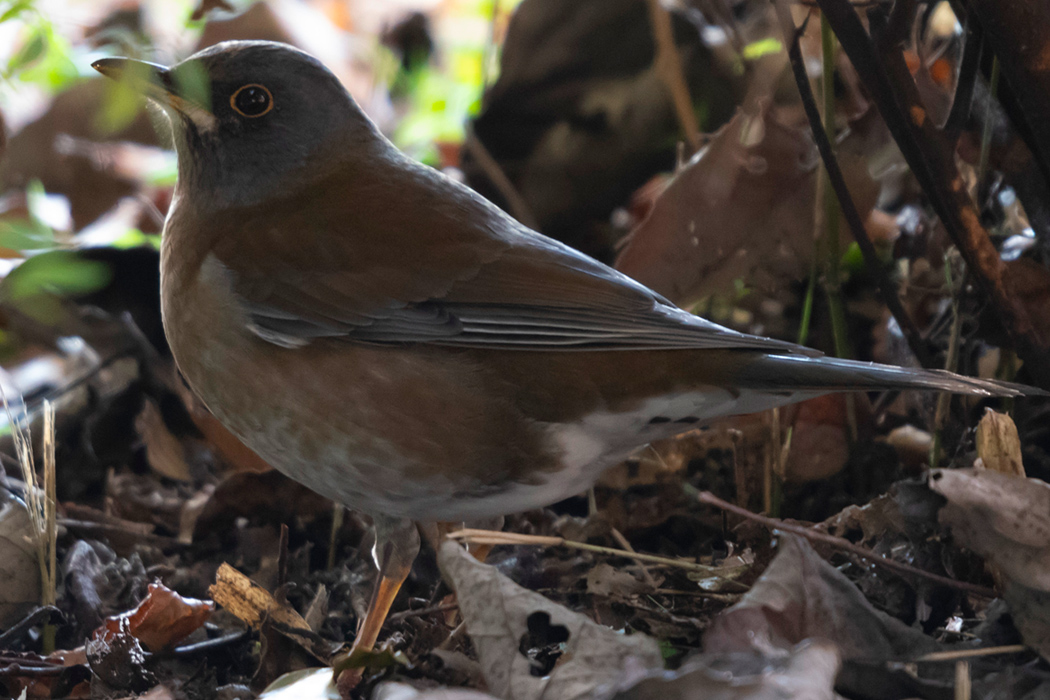
Pale Thrush
Lurking in winter bushes.
| Scientific name | Turdus pallidus |
| English name | Pale Thrush |
| Japanese name | 白腹 |
| Classification | Aves |
| Classification details | Passeriformes Turdidae |
| Full length | 25cm |
| Distribution | fly to all over the country for wintering |
Characteristics
A member of the bulbul-sized thrush. The whole body is grey-brown, and as the name suggests, the belly is whitish. The head is grayish and the back is brownish. The beak and feet are yellow to orange with thin yellow eye rings around the eyes. It looks a lot like Akahara, but it doesn't have an orange color on its body. Males and females look very similar, but females are slightly whiter.
Calls
I can hear the characteristic cry of Shirohara from the bushes. "Kyokyo" and "pyopyo" are different voices from brown-eared bulbuls.
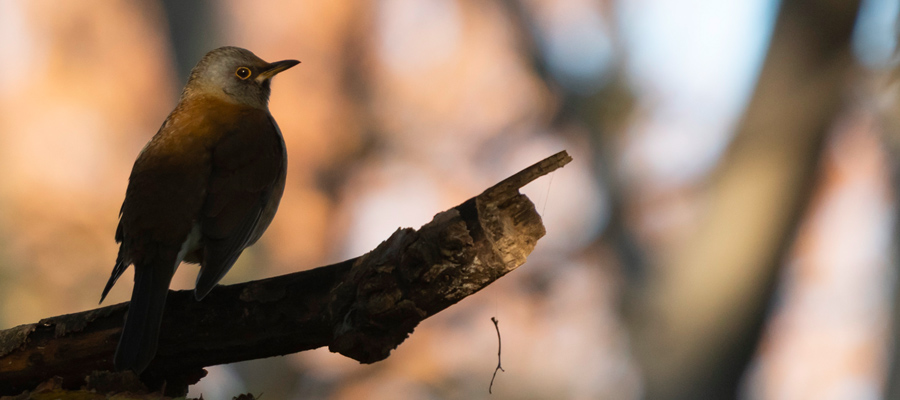
Ecology
It comes flying south of Honshu as a winter bird. It lives mainly in forests, but it also comes to bushes in parks. It eats insects, worms and nuts while walking on the ground alone. Their behavior is very similar to thrushes.
Habitat
This photo was taken in the thickets of Katakura Castle Ruins Park in Hachioji City. In winter, when I was walking along the forest road in the park, I heard the peculiar cry of the white harassment called "pyo-pyo-pyo". After searching for a while, I found an individual walking on the ground among fallen leaves. It looks a lot like the thrush, but it gives the impression that it lives in the dark.
Pictures
Introducing a picture of Pale Thrush.

Picture book

Speckled butterflyfish
There are fine sesame-like spots on the body.......ead more.

Cigar wrasse
It looks a lot like seaweed.......ead more.

Japanese Pygmy Woodpecker
A small woodpecker that you can meet up close.......ead more.

Lined sea hare
Fine streaks run vertically.......ead more.

Striped shore crab
Runs around the rocky beach and eats sea lice, small fish and seaweed.......ead more.
